Battling Hunger and a Pandemic
Lisa Scales ('87), president and CEO of Greater Pittsburgh Community Food Bank, fights against food insecurity.

Photos by Laura Petrilla
Battling Hunger and a Pandemic
Lisa Scales (’87), president and CEO of Greater Pittsburgh Community Food Bank, fights against food insecurity.
When the coronavirus pandemic hit her area in March, Lisa Scales (’87), president and CEO of Greater Pittsburgh Community Food Bank, was struck by the panic she saw from people in need of help.
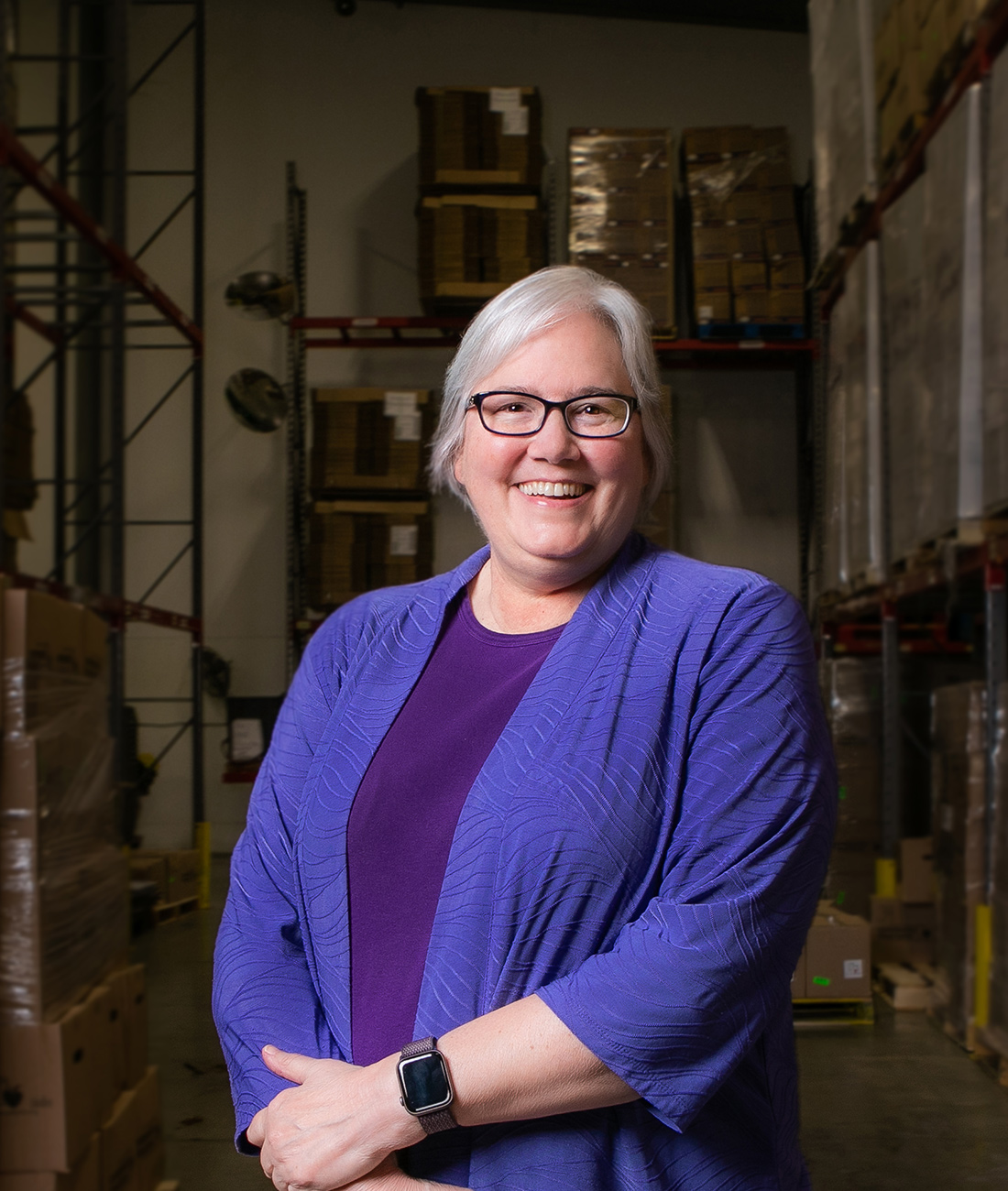
“The fear people had early on…they were really concerned about how they were going to survive,” she says.
Calls to the food bank grew from a handful before the pandemic to over one hundred per day. Visitors to their warehouse seeking help went from 15 to 90 per day. The website’s help page was visited over 13,000 times in April—12 thousand more than the year prior. The team was working 16-hour days. The food bank held its first drive-up food distribution on March 18, and the atmosphere reminded Scales of her relief work in disaster areas.
“It was as though I was in Louisiana after Hurricane Katrina,” she recalls. “I felt the same level of constant pressure…the need being so large and trying to figure out how best to serve that need.”
Working with Greater Pittsburgh Community Food Bank since the mid-1990s and CEO since 2012, Scales is a leader in the fight against food insecurity. She’s helped grow the organization’s connections with the community, incorporated sustainable food practices, and strengthened partnerships with food pantries across southwestern Pennsylvania, providing food for nearly 40 million meals in 2019 alone. For Scales, it’s a way to make a positive impact in people’s lives.
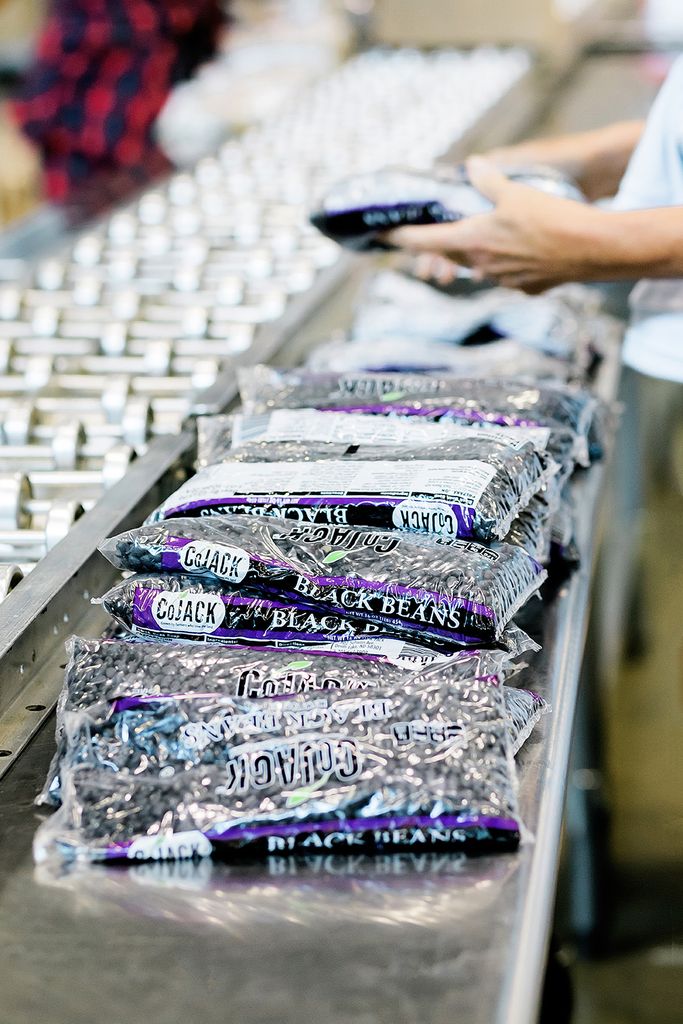
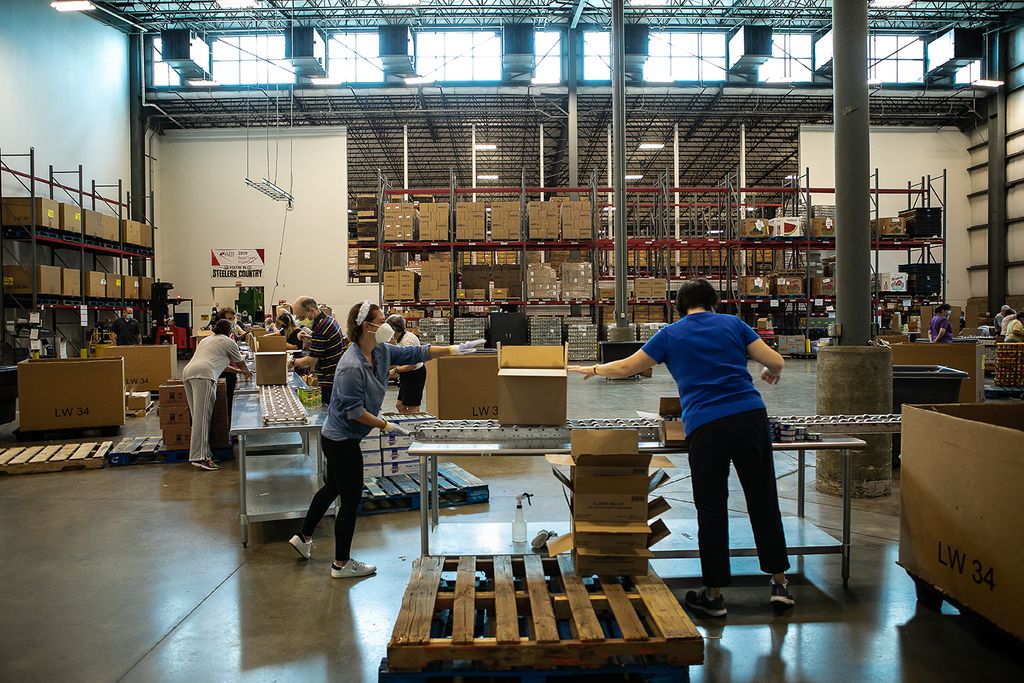
Volunteers pack boxes of donated food for distribution through the Greater Pittsburgh Community Food Bank. | Photos by Laura Petrilla
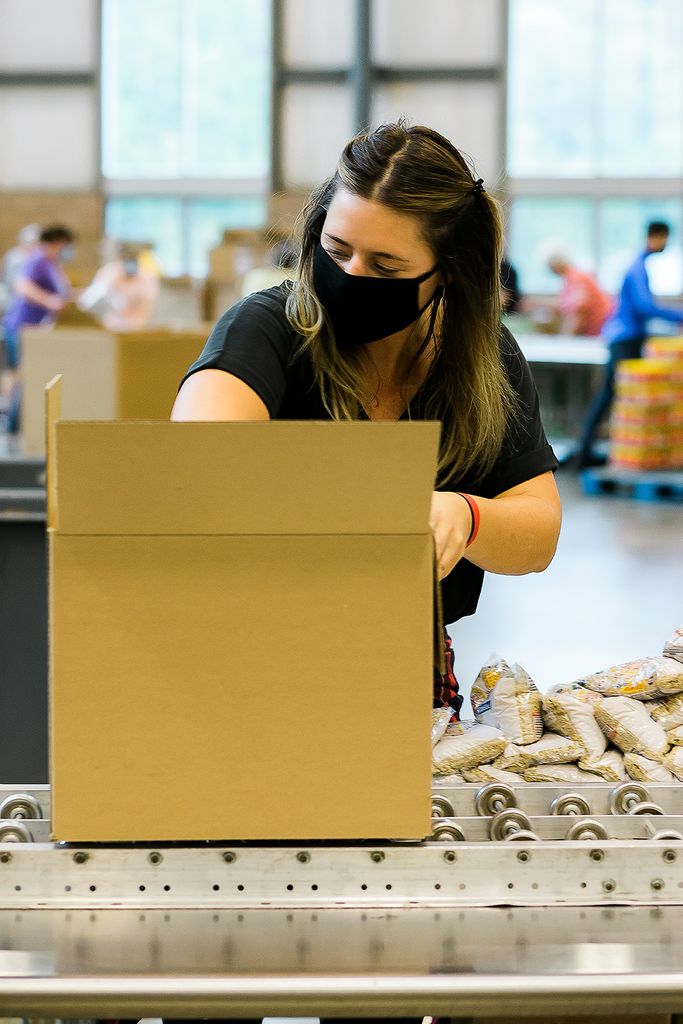
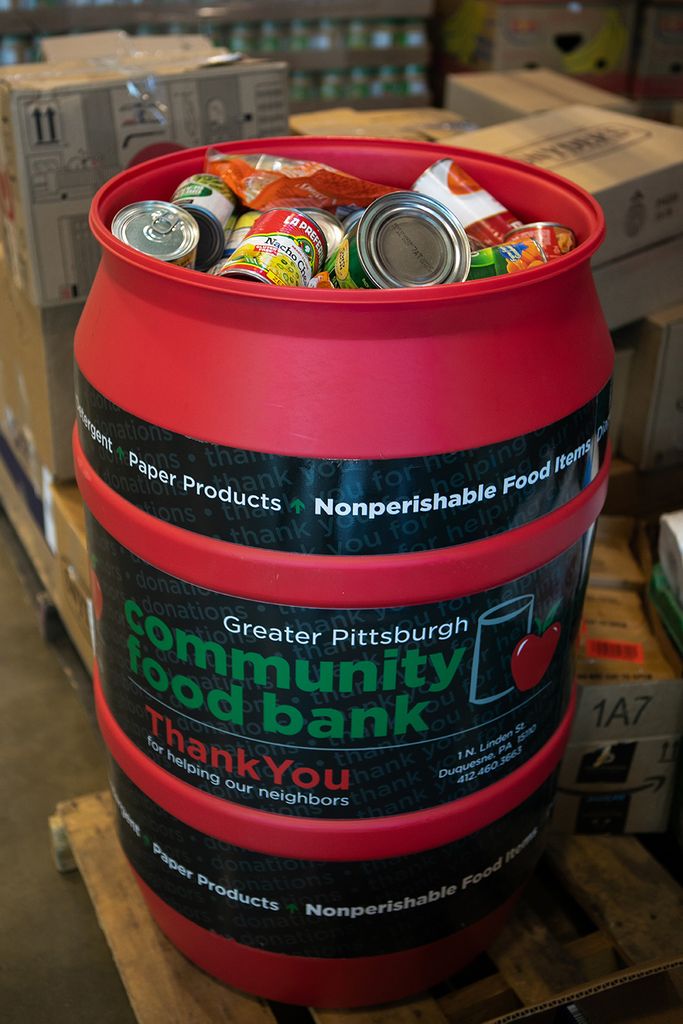

Born and raised near Pittsburgh, Scales traces her interest in law to her father and grandfather, both of whom were lawyers. She recalls how, as a child, she accompanied her father while he met clients on the weekends.
She remembers, “My dad really modeled how important it is to listen to people, hear their concerns, and give back to the community.”
After graduating from BU Law, Scales moved to Chicago and took a job as an assistant corporation counsel for the City of Chicago before returning home to work in her father’s law firm. She discovered that while she loved the law, it didn’t fuel her passion.
“I wanted more,” she says. “I wanted to make a difference in people’s lives in a different way.”
Scales’ chance would come at a friend’s party, where she met a fundraiser for Greater Pittsburgh Community Food Bank.
“She spoke so passionately about the mission of the food bank,” Scales says. “That really stuck with me.”
The conversation sparked her interest, and when she saw an opportunity to work as an interviewer on a childhood hunger study, she jumped at it.
“I did that for a year and said, ‘Well, eventually I’ll figure out what I’m going to do with the rest of my life.’”
Not long after, the woman from the party alerted her to an opportunity with the food bank. Scales applied and was hired as a program supervisor in 1996. Since then, she has witnessed both the organization transform and the need for help grow. When she started, the food bank was mainly assisting people experiencing homelessness and unemployment, reflecting the closing steel mills in the region. Today, they are assisting people who are underemployed, often working more than one job, as well as seniors, veterans, and people with disabilities.
“People are in line at our pantries because they’re under-resourced,” she says. “They don’t have enough income to make ends meet.”
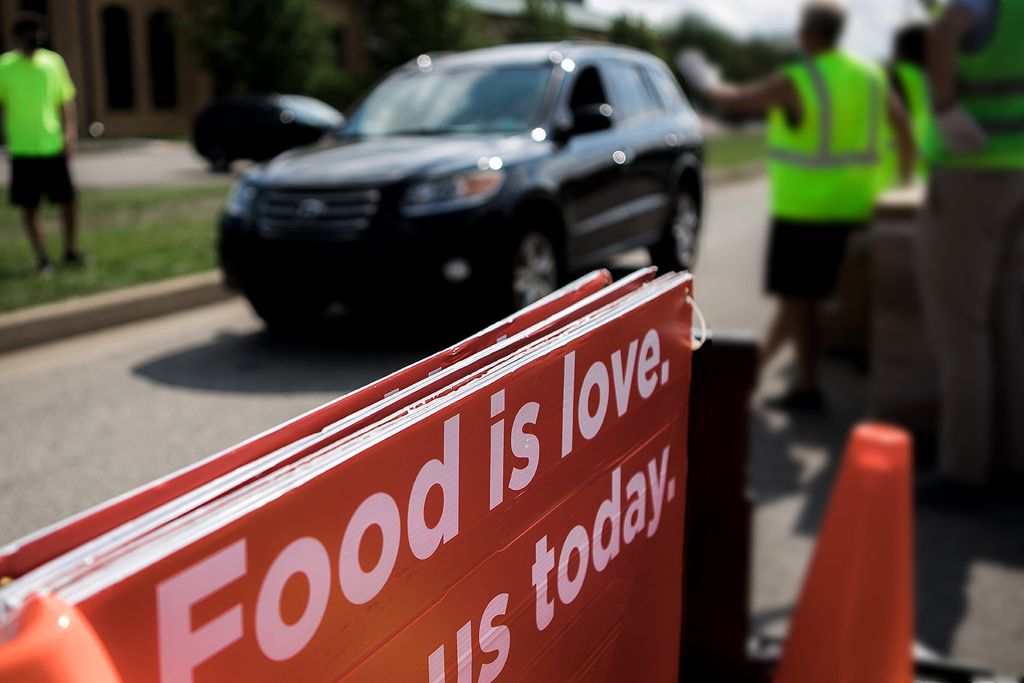
A drive up distribution event at the Greater Pittsburgh Community Food Bank. | Photos by Laura Petrilla
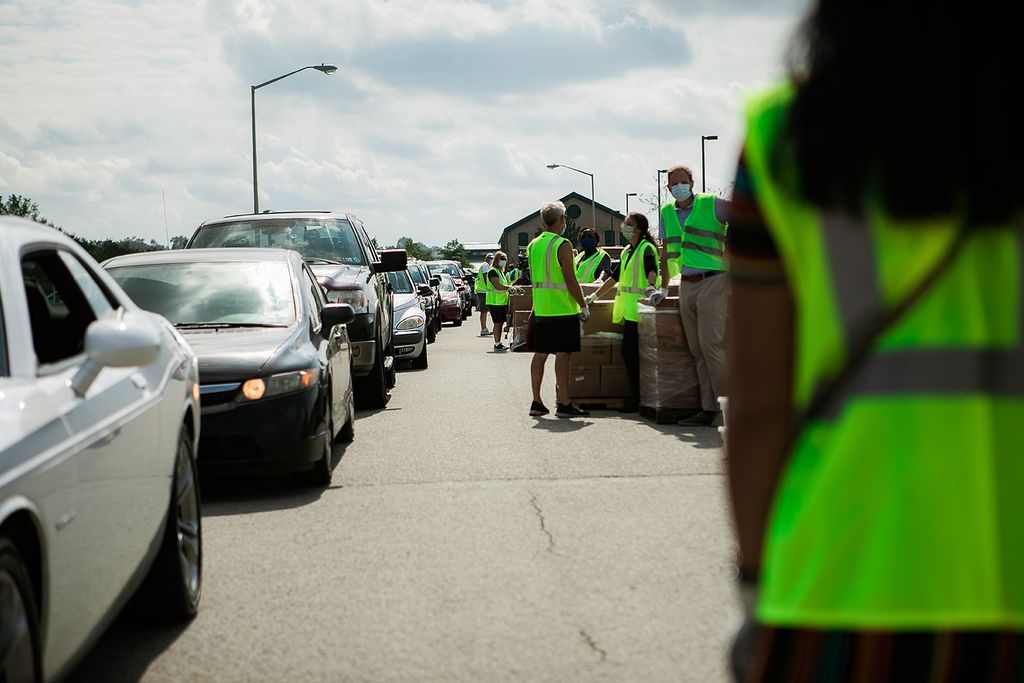

The food bank serves 11 counties in southwestern Pennsylvania, covering 300,000 people in its service area. It has over 500 partners including soup kitchens, senior centers, and school programs. Scales views it as a public health organization, helping not only to make sure people have healthy food to eat, but actively seeking to connect people to job opportunities and healthcare providers. As well, the food bank leverages its partnerships to widen its reach and address where the need is greatest.
“There’s an opportunity for food banks, now more than ever, to expand access to food—get it closer to where people are when they need it,” says Scales. “It’s not just available in that pantry in a church basement.”
The food bank is also pushing to ensure the food they distribute is fresh and nutritious. In 2019 they distributed 12 million pounds of fresh produce and aim to reach 20 million—half its distribution—by 2025.
“If you don’t have food, it’s hard for kids to learn in school, and it’s hard for adults to go out and look for a job,” she adds.
The first few weeks of the lockdown were difficult for the food bank, but the team has been proactive in responding to the challenge. In the early days of the pandemic, Scales asked Pennsylvania governor Tom Wolf to authorize the National Guard to help pack emergency food boxes. They implemented social distancing policies for their volunteers, launched a home delivery service which has made over 10,000 deliveries so far, and opened 24 grab-and-go sites around the area so that kids had meals while out of school. While the demand for food has stabilized in the months since and the food reserve is healthy, the food bank is preparing for a potentially challenging fall and winter.
“What really inspired me was the community coming together,” remarks Scales, as volunteers and staff members stepped up to help as many people as they could.
There are many ways to help combat food insecurity, Scales notes, by donating time, money, and other support to local pantries. Advocacy on hunger issues, such as strengthening federal programs like the Supplemental Nutrition Assistance Program (SNAP) and state and local policies can also help make a difference.
“Donate, volunteer, and speak out,” says Scales. “There are opportunities for everyone to get involved.”
